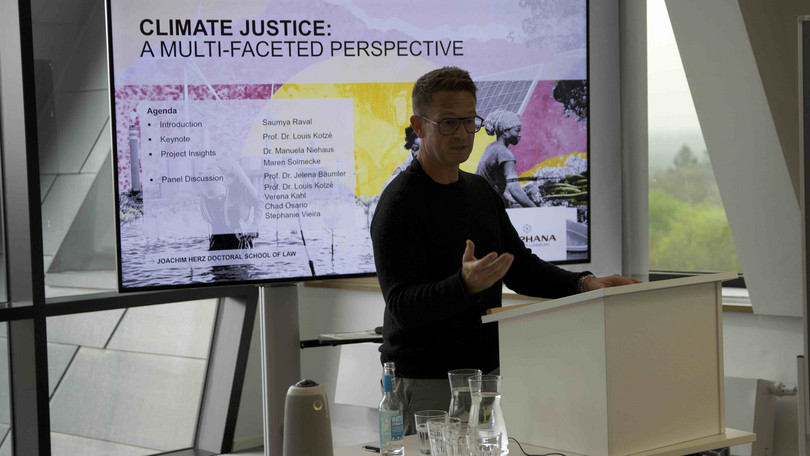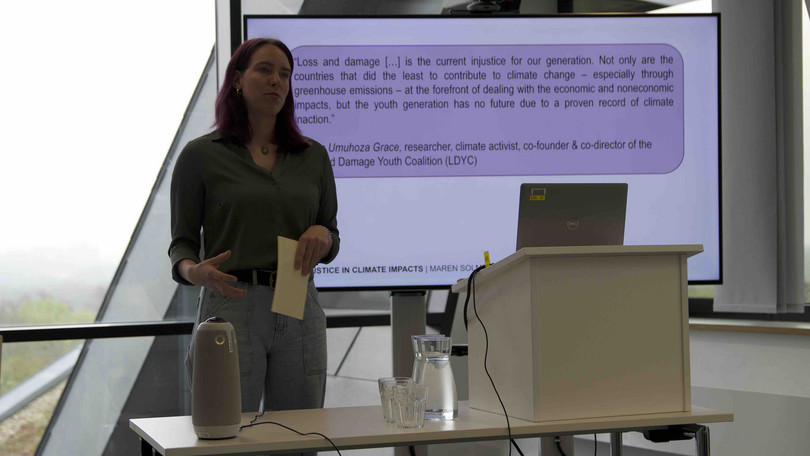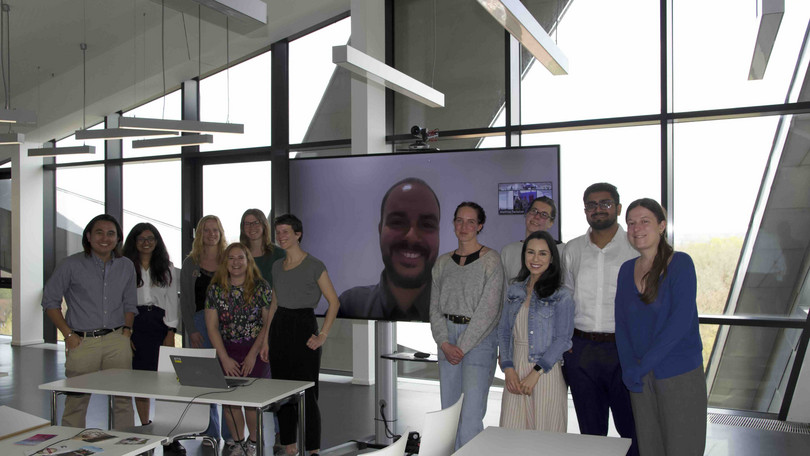Conclusion of the Climate Justice Lab (2024/25)
2025-04-15
The Climate Justice Lab took place during the 2024/25 academic year. As part of the project, 15 young researchers (mostly doctoral students and postdoctoral researchers) gathered at Leuphana University Lüneburg to explore and discuss climate justice in a series of workshops.
The project had two core objectives:
Firstly, it gave participating young scientists the opportunity to openly discuss and test a research idea with colleagues from the same field in a closely supervised project from the outset. As the project culminated in the publication of an edited collection, encompassing a research contribution from each participant, the Climate Justice Lab provided a safe space to develop academic writing skills, while offering the chance to publish the resulting research.
Secondly, the Climate Justice Lab also served as a forum for discussions within the group and with experts. Professor Louis Kotzé(Wageningen University) closely supported the project. Additionally, Professor Radha D’Souza, from the University of Westminster, provided insight into her project on the Court of Intergenerational Climate Crimes (link) during the first workshop, which took place on 29 and 30 October 2024. During the open university screening of the film Water for Life (2023, link), Lab participant Andrea Pietrafesa(ECCHR) reported on her experiences of the legal struggle for access to water, especially among indigenous peoples, in Latin America.
Subsequent digital meetings in December 2024 and March 2025 featured presentations by Professor Oliver Fuo (North-West University) and Dr Thalia Viveros Uehara (Tilburg University). During the final on-site workshop, which took place from 15 to 17 April 2025, Tabea Lissner (Robert Bosch Stiftung), Dr Patrick Toussaint (African Futures Lab), and Silvia Rojas Castro (ECCHR) provided further insights into their work and academic activities related to climate justice.
On 17 April, the Climate Justice Lab came to a close with a public project presentation. This event included a keynote speech by Professor Kotzé, exemplary presentations of two papers produced in this context by Dr Manuela Niehaus (University of Speyer) and Maren Solmecke, and a panel discussion with Professor Dr Jelena Bäumler, spokesperson for the Joachim Herz Doctoral School of Law, among others.
Over the coming months, the edited collection will be prepared for publication to make the results accessible to a wider audience.
We would like to thank everyone involved, especially the participants, for their input and commitment.



